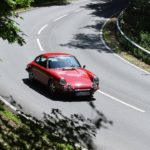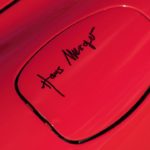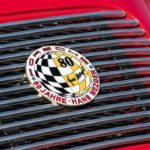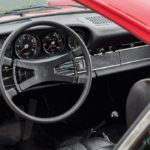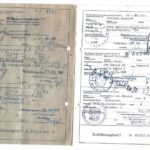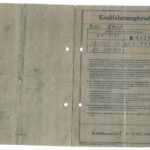Per Michael Eiden, the current owner of this red 911S; “The previous owner was really desperate. He had the body of the car restored and also replaced the side panels with the corresponding spare parts. But when assembling it, nothing fitted together again – it was like it was jinxed.” But the reason the bodywork wouldn’t fit back together wasn’t immediately apparent. It seemed that there was no logical reason that this ’68 911 shouldn’t be like all the others- at least until its ownership history was thoroughly investigated.
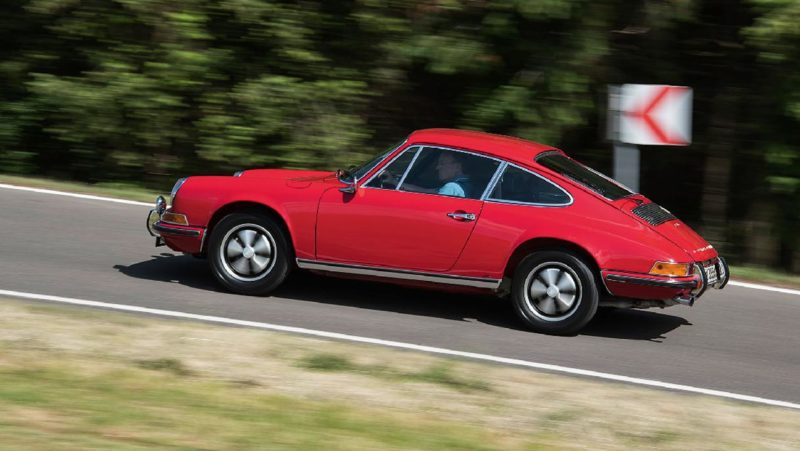
This particular 1968 911S was owned first by Porsche itself, and then from 1969-1973 by Porsche engine master Hans Mezger. Mezger, perhaps best known for his work with turbocharged engines, had been associated with the company for decades by the time he did his best known work. In the 1950s Mezger worked on the Porsche Formula 1 program. In the 1980s he designed the TAG-Porsche V6 used in Formula 1. In the 1990s he brought us the turbocharged 911 GT1 flat-six- an engine which would power top-tier Porsche models for more than 15 years after its inception. Even in retirement, Mezger is still tied to Porsche, and contributed expertise to Singer.
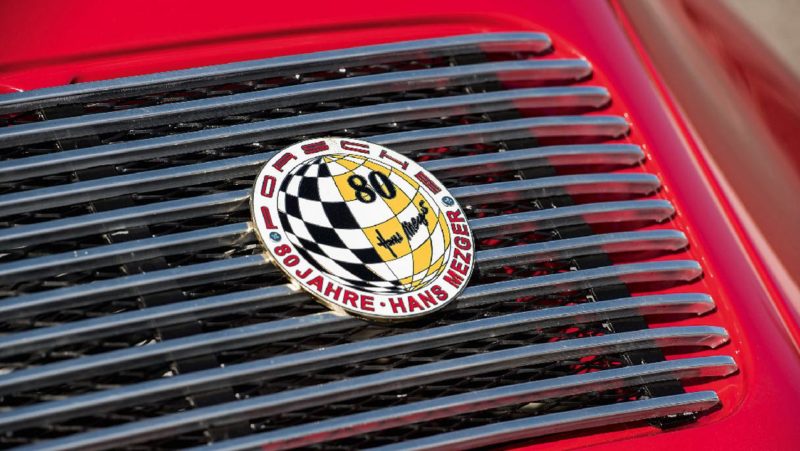
What is little-known, however, is that Mezger helped design the original 911 engine. “There was still a lot to do when I joined the team in 1963”, recalls Mezger. The most important action was to redesign the valve drive. The previously centrally positioned camshafts migrated into the cylinder heads of the 2.0-liter six-cylinder boxer, which – as with the Formula 1 V8 – was also given an eight-bearing crankshaft and thus better tolerated higher engine speeds.”
Mezger’s design not only aided power, it also made the cars more efficient. “Two things happened whenever we made the angle of the valves smaller: the power output increased and the fuel consumption dropped”, explains the technical genius. The engineers worked at their drawing boards for a long time before committing themselves: 27 degrees to the vertical for the inlet valve and 33 degrees for the exhaust valve – a perfect decision that was retained until the end of the air-cooled boxer.”
Secrets of Porsche’s Ownership
But simply being owned by a master engineer doesn’t necessarily make the car hard to restore. This 1968 911S wasn’t just any 911S, it was a pre-production car which carried many of the features of the updated 1969 cars. The air-cooled flat-six was equipped with mechanical fuel injection, and the car received ventilated brakes. Most importantly, this 1968 received the 57mm-longer 2,268mm wheelbase used from 1969 on. This additional 2.24″ meant that the 1968 replacement panels no longer fit. The final piece to the puzzle apparently came from Mezger himself, who indicated that the car had been used as a company car of Ferdinand Piëch, then head of development at Porsche. .

